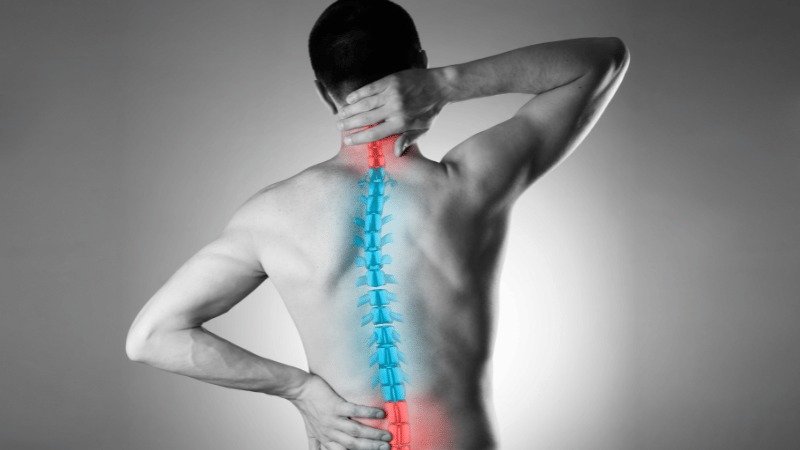What is Meniere’s Disease?
According to the National Institute on Deafness and Other Communication Disorders (NIDCD), approximately 600,000 individuals in the United States are diagnosed with Meniere’s disease, with around 40,000+ new cases are diagnosed each year. This condition, primarily affecting the inner ear, can lead to severe symptoms such as intense dizziness (vertigo), ear ringing (tinnitus), hearing loss, and a feeling of fullness in the ear. Meniere’s disease often affects just one side of the ear and can develop at any age. It is often diagnosed in adults aged 40 to 60.
The symptoms can be sudden and the severity of the symptoms can vary in frequency and intensity. While some people experience less frequent episodes, others may have more frequent attacks. In extreme cases, vertigo can cause “drop attacks,” leading to a loss of balance and falls.
The root cause of Meniere’s disease is not entirely clear, but it is associated with an excess of specific fluid in the inner ear. Recently, researchers have begun to consider this fluid accumulation as a symptom of the disease rather than the cause. This has opened up new avenues for research and potential treatments.
Common Symptoms
Meniere’s disease is characterized by four primary symptoms, each varying from person to person, which contributes to the complexity and uniqueness of the condition.
- Vertigo: The most common symptom, vertigo, gives the spinning sensation. This can be severe enough to cause “drop attacks,” which can cause a person to fall suddenly. These episodes, sometimes can add intense nausea, may last from a few minutes to several hours. Approximately 70% of those with Meniere’s experience a decrease in vertigo attacks over time, while the remaining 30% may require more aggressive treatments due to persistent symptoms.
- Hearing Loss: Meniere’s often leads to fluctuating hearing loss, initially in the lower frequencies. Hearing may improve between episodes but tends to worsen progressively. While complete loss of hearing is rare, moderate to severe hearing loss is frequently seen.
- Tinnitus: This symptom usually is experienced as a low-pitched hissing, rushing, or roaring sound, corresponding to the frequencies where hearing loss occurs. Tinnitus may be constant or fluctuate.
- Ear Fullness: A sensation of pressure or fullness in the ear or head, as if it needs to “pop,” is another major symptom. This is due to malfunctioning of the Eustachian tube, which fails to equalize the pressure in the ear.
Causes
The exact cause of Meniere’s disease is still unknown, though several theories exist. Some experts suggest it could be related to blood vessel constrictions similar to those in migraines, viral infections, allergies, autoimmune problems, or even genetic factors affecting the fluid regulation in the ear. Despite these theories, a definitive cause has yet to be established.
Recent theories suggest that trauma to the spine might be a contributing factor. This trauma could be from various incidents, like a head injury, whiplash from a car accident, or a sports-related injury. Such traumatic events can lead to symptoms like vertigo, tinnitus, and potentially Meniere’s disease itself. Interestingly, these symptoms might emerge immediately following the trauma or could develop gradually, sometimes taking months or even years to appear.
How NUCCA Chiropractor Helps with Meniere’s Disease
When it comes to treating patients with Meniere’s disease, focusing on the upper cervical spine is crucial. A misalignment in this area can trigger symptoms similar to those of Meniere’s disease, as it can irritate nerves in the upper neck and inner ear. Upper Cervical Chiropractors like NUCCA play a key role in this treatment. They start by assessing any spinal trauma and considering if the inner ear disorder might improve with NUCCA care.
The treatment process begins with precise measurements of the spinal balance. These initial measurements also provide a baseline for future assessments, helping upper cervical chiropractors in deciding when further spinal corrections are necessary. This careful approach aims to address the specific needs of each patients with Meniere’s disease, potentially alleviating their symptoms through specific spinal care.
NUCCA Wellness Clinic of Chicago
Dr. Young H. Chung is a well-known NUCCA chiropractor who specializes in correcting the atlas misalignment in the upper neck. NUCCA provides a simple solution to complex health problems including structural and neurological health issues. If you’d like to make an appointment for the initial consultation, please call (224) 676-1920 or fill out a contact form on our website.
4801 W. Peterson Ave, Suite 216, Chicago, Illinois 60646
401 S. Milwaukee Ave, Suite 210, Wheeling, Illinois 60090





